#CHIESA
Explore tagged Tumblr posts
Text
I hope he’ll have more minutes in the next games to show what he can do, the games he has played so far he’s been great and I don’t understand why Slot hasn’t played him !!!!
I’m moved
104 notes
·
View notes
Text

Casa Professa, Palermo, Sicily, Italy
#art#design#architecture#history#luxury lifestyle#style#interior design#church#sicily#italy#palermo#baroque#chiesa#casa#casa professa
2K notes
·
View notes
Text
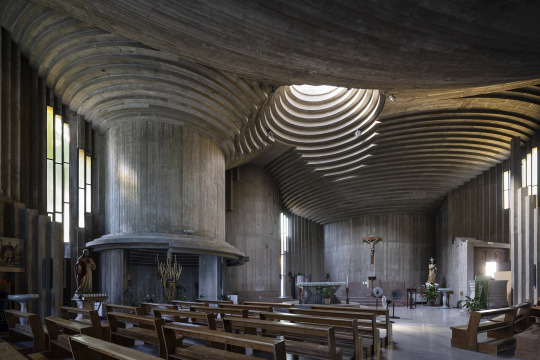
Chiesa della Sacra Famiglia (Sacred Family Church), by Paolo Portoghesi and Vittorio Gigliotti (1971-1974).
Salerno, Italy.
© Roberto Conte (2016)
Follow me on Instagram
#architecture#architettura#architecturephotography#architektur#brutalism#brutalist#brutalismo#chiesa#paoloportoghesi
1K notes
·
View notes
Text
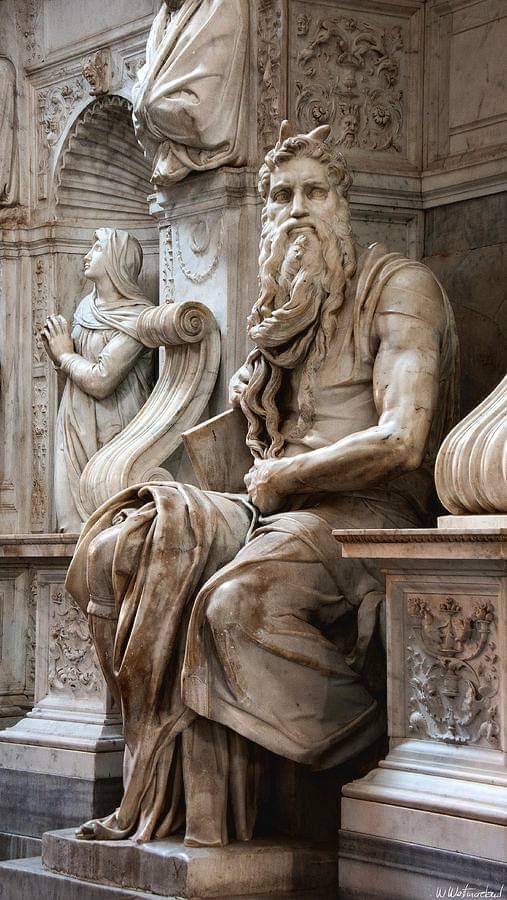
Michelangelo's Statue of Moses, Church of Saint Peter in Vincoli, Rome, ITALY
#michelangelo#miguel angel#mosè#moses#moises#statue#statua#estatua#chiesa#church#iglesia#san pietro#saint peter#san pedro#vincoli#san pietro in vincoli#roma#rome#italia#italy#europe#europa
2K notes
·
View notes
Text
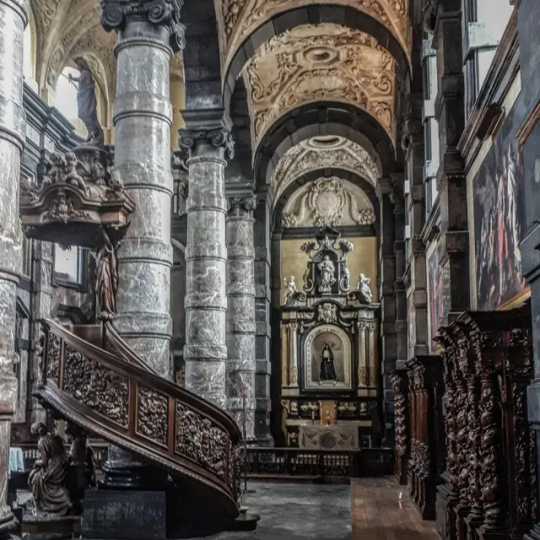
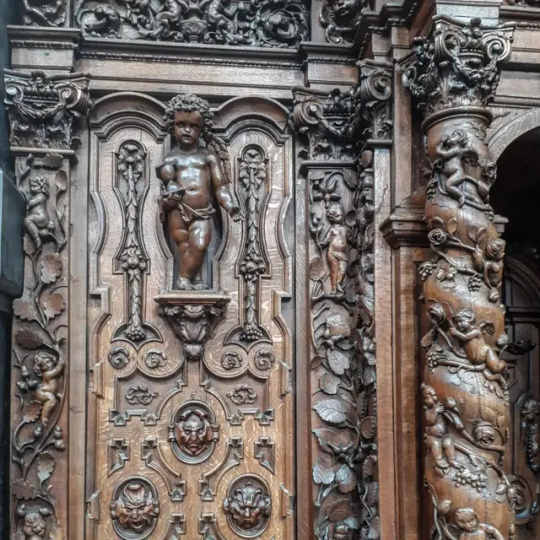


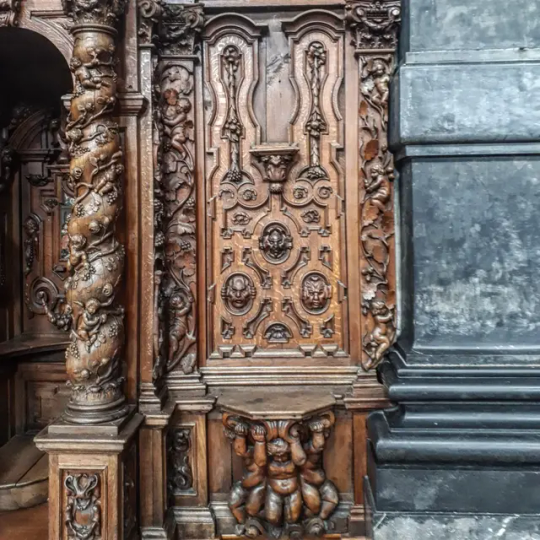
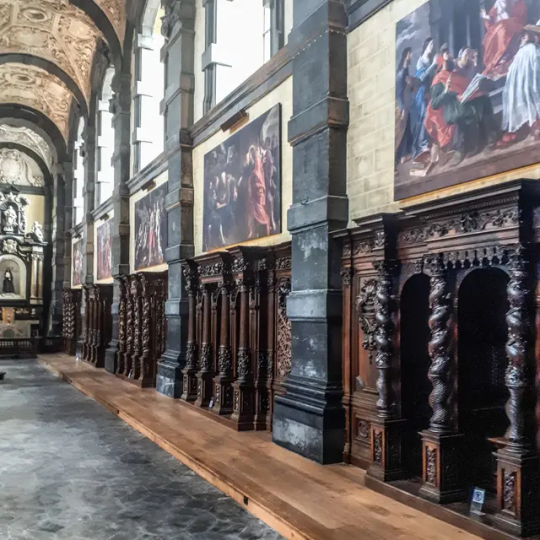
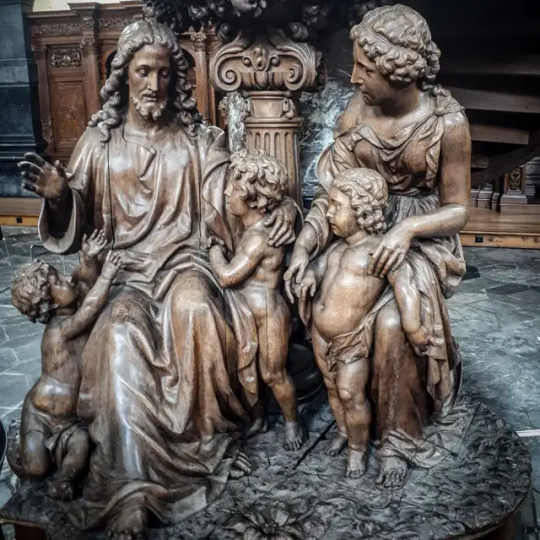
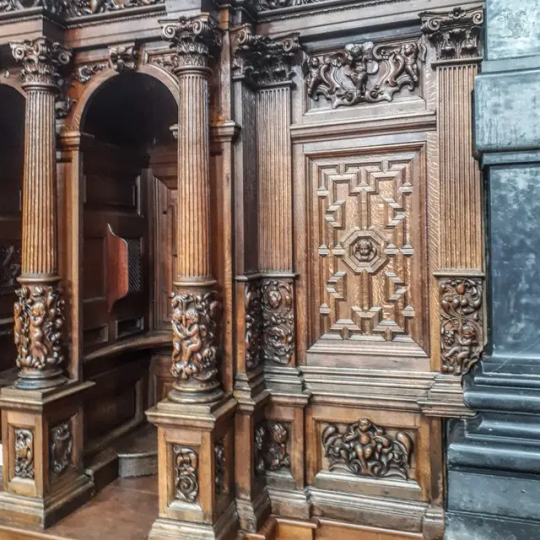
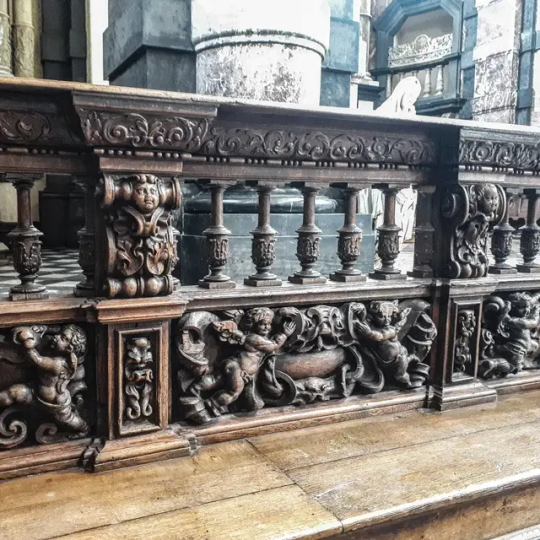

In the capital of Wallonia (the French speaking southern part of Belgium) you can find this amazing interior in Flemish baroque style of the Saint-Lupus Church (Église Saint-Loup).
It is one of the most important Baroque churches in Belgium and was built by the Jesuits between 1621 and 1645. Initially it was called Saint Ignatius Church (église Saint-Ignace), and served the adjacent Jesuit college. Today, this church is also used for concerts in addition to worship services.
After their arrival in the 17th century, the Jesuits took over a small college which they enlarged. Afterwards they built a church adjacent to this college, which was dedicated to Saint Ignatius, the founder of the Jesuit order. Pieter Huyssens (° Bruges, 1577, † Bruges, 6-6-1637), a Flemish Jesuit, architect and Baroque master, designed this church. Nevertheless, he did not live to see its completion: even at the start of the construction works, there appeared to be insufficient funds for immediate completion. Although the rector of the college regularly called for donations, the activities slowed down: they were forced to be spread over the period from 1621 to 1641. The architect himself died earlier: in 1637. After the completion of the church, it was finally consacrated.
#namur#namen#churches#church#eglise#igreja#iglesia#chiesa#kirche#belgium#belgie#belgica#belgique#church interior#ars sacra#wallonie#wallonia#patrimoine#heritage#baroque architecture#baroque#barok#barocco#religion#catholic#flemish#wood sculpture#wood#wood paneling#wood carving
182 notes
·
View notes
Text

Freiburg im Breisgau, Deutschland, 13 Dezember 2024
#Kirchturm#Photographers on tumblr#Fotografie#Kirchtürme#Photography#Church Towers#Igreja#Iglesia#église#Original Photo#Freiburg im Breisgau#Deutschland#chiesa#photographie#Architektur#architecture#arquitetura
80 notes
·
View notes
Text










Chiesa di San Giovanni e la Castiglia a Saluzzo CN
51 notes
·
View notes
Text







l'Italia è un paese in cui tutto sembra essere fatto per il piacere e la bellezza.
.
(San-Vincent) valle d'Aosta un posto misterioso
#original photographers#photography#nikon#photographers on tumblr#photooftheday#landscape#waterfall#beautiful#portraiture#mountains#paesagginaturali#paesaggistupendi#paesaggio#italy#hws italy#italia#sunset landscape#valle d'aosta#chiesa#church#my photos#best#natural#natural bewbs#nature photoshoot#nature news#nature lovers#nature#nikon lens#nikongallery
37 notes
·
View notes
Text


some chiesa and nymphe doodles :] i love eule x ara
36 notes
·
View notes
Text

MACCA X CHIESA #Babygirl coded 🎀
#trent alexander arnold#football#football wags#nostalgia#soundcloud#art#cute#liverpool fc#f1 wags#viral trends#alexis mac allister#mohamed salah#mo salah#salah#virgil van dijk#premier league#champions trophy 2025#chiesa#italy
13 notes
·
View notes
Text

Quel poco di cambiamento che quella rocca della conservazione che è la Chiesa poteva sopportare. Nonostante non abbia cambiato nulla in merito ai dogmi, alle donne nel clero, agli omosessuali, alla dottrina sessuale, alla democratizzazione del governo della teocrazia vaticana, è stato un pontefice della pace e della relazione con i poveri, con l' ambiente, con i migranti.


13 notes
·
View notes
Text

The abandoned Church of San Carlo (1580), reclaimed by nature.
Roccabianca (Parma), Italy.
© Roberto Conte (2023)
#architecture#architecturephotography#architettura#architektur#abbandono#abandoned#decay#“abandoned places”#abandoned places#luoghi abbandonati#chiesa#church
1K notes
·
View notes
Text

Capella di San Giovanni - ITALIA
#chiesa#chapel#capella#capilla#san giovanni#church#saint john#iglesia#san juan#bolzano#south tyrol#alto adige#italia#italy#europe#europa
144 notes
·
View notes
Photo

by ilConte
#salerno#italia#architecture#architettura#architektur#chiesa#church#kirche#chiesadellasacrafamiglia#paoloportoghesi#vittoriogigliotti#brutalism#brutalismo#brutalist#flickr#thingsdavidlikes
23 notes
·
View notes
Text
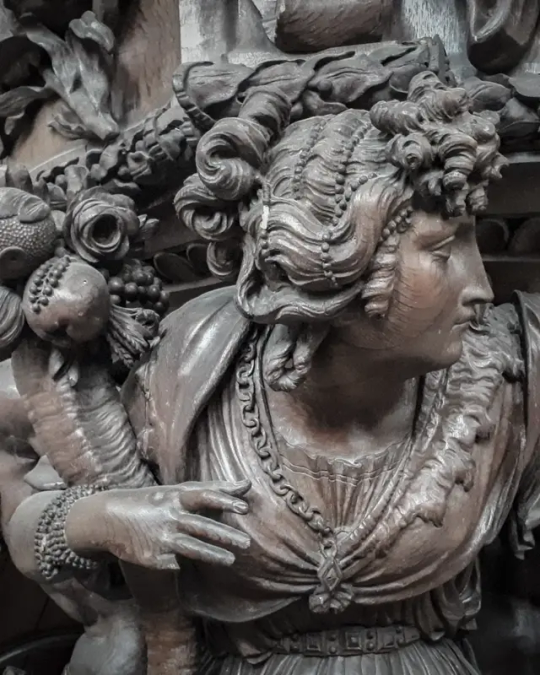
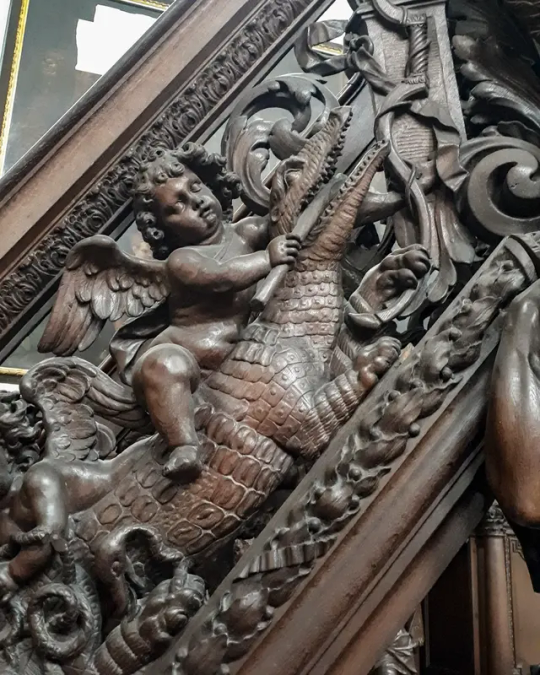

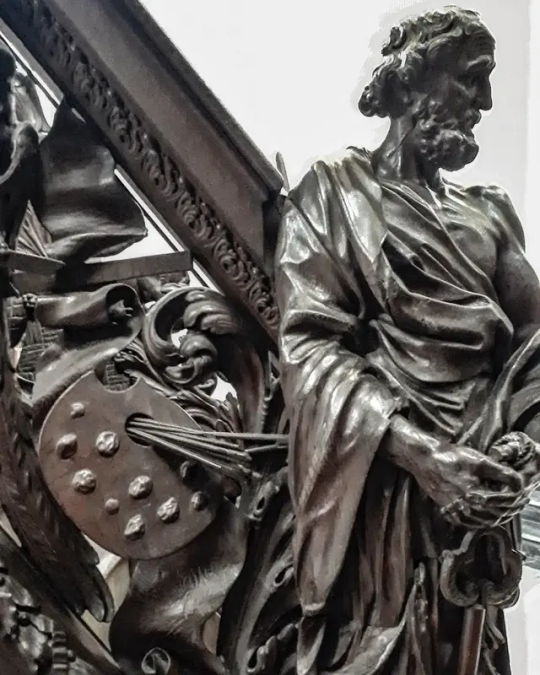
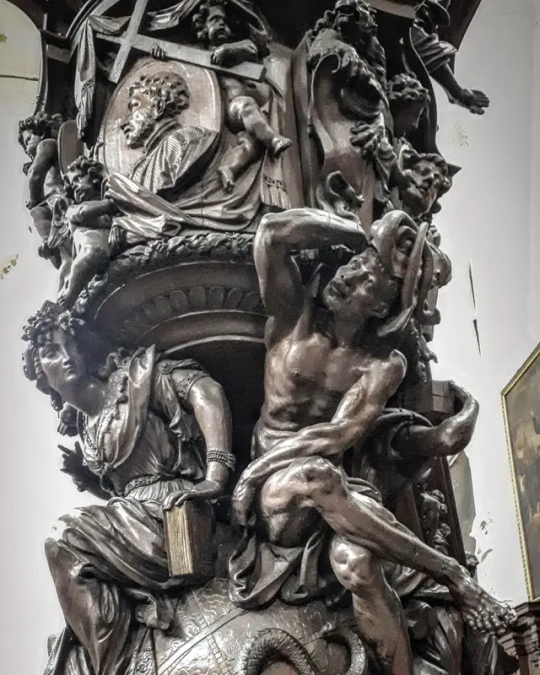
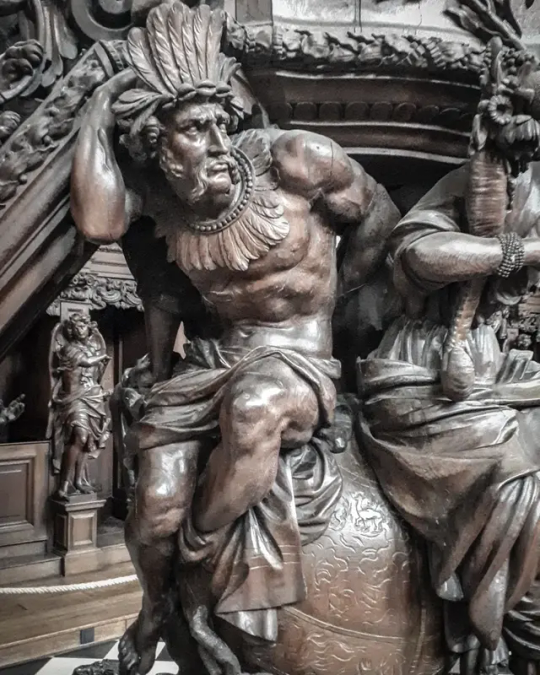


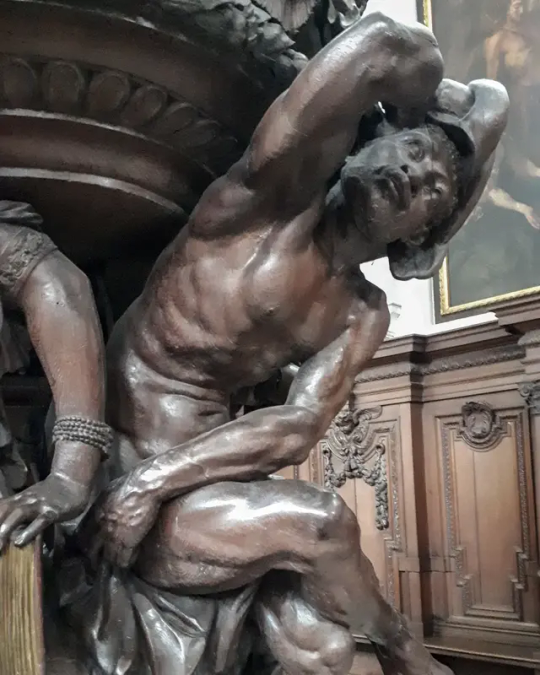
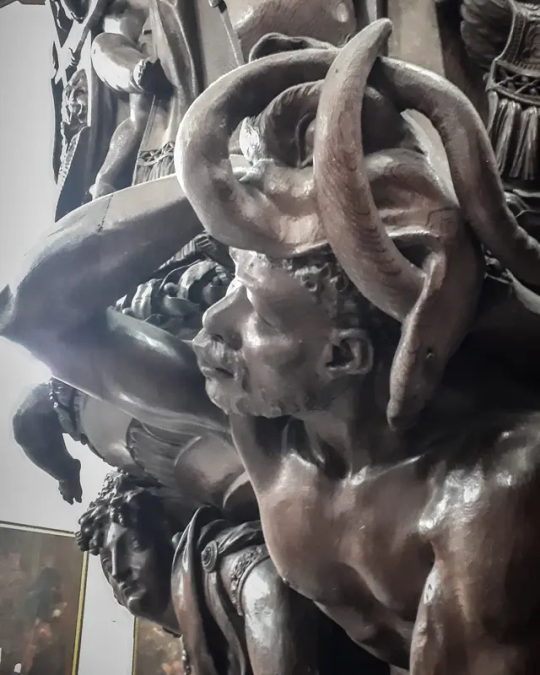
Mechelen was from the late middle ages till the baroque period a centre of woodsculpting. So in this city you can find many top noch furnitures, wood carvings and woodsculptures. Here i present to you the pulpit of the Saint-Peter-and-Paul church (Sint-Pieter-en-Pauluskerk) in Mechelen, Belgium.
The Saint Peter and Paul Church is a former Jesuit church on the Veemarkt in Mechelen. The pulpit, a work by Hendrik Frans Verbruggen (ca. 1700), shows in the form of allegorical figures the spread of the Faith across four continents by the Jesuit Francis Xavier.
The base is a globe resting on crawlers; The globe contains the four then known continents, in the form of persons and characteristic animals:
America: the Indian, turtle and snake
Europa: the young woman with the horn of abundance (cornucopia), a sceptre, a book and a doe
Asia: the woman with a turban and the leopard
Africa: the black one covered with elephant skin, and the crocodile.
Some background on the sculptor Hendrik Frans Verbruggen:
He was born into a family that produced a number of prominent sculptors in the 17th and 18th centuries who were mainly active in Antwerp. His father, the sculptor Pieter Verbruggen, was one of the most important representatives of the Flemish High Baroque in sculpture. The father had been apprenticed to Erasmus Quellinus I, who himself was the founder of a prominent family of sculptors. The father was married to the daughter of his teacher Erasmus Quellinus. From this marriage Hendrik Frans Verbruggen was born. His brother Pieter Verbruggen also became a sculptor and worked in his father's studio.
He was initially trained by his father. However, he is said to have started his career with the book illuminator Jan Ruyselinck. It cannot be ruled out that after his education, like his brother Pieter, he first made a trip to Italy. This journey is not documented. The influence of the Italian sculptor Gianlorenzo Bernini on his work could also be explained by the fact that he used drawings after Bernini's works and antique sculptures that his brother made in Rome as a source of inspiration.
He became a master sculptor with the Antwerp Guild of Saint Luke in 1682. That year he married Susanna Verhulst. He became dean of the Guild of Saint Luke in 1689. In 1713 he went bankrupt, but this did not prevent him from completing existing assignments.
#historical#belgium#history#historical interior#art history#wood sculpture#sculptures#scultura#sculpture#pulpit#wood#oak#fine art#flemish art#flemish#sculptor#churches#church#eglise#iglesia#igreja#chiesa#religious art#mechelen#flanders#brabant#baroque art#baroque#barok#europe
26 notes
·
View notes